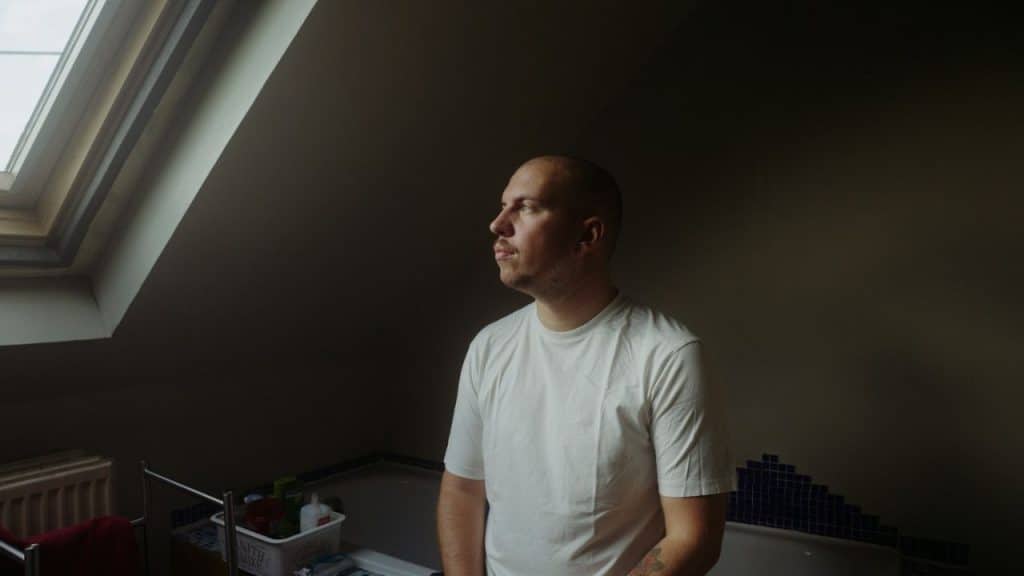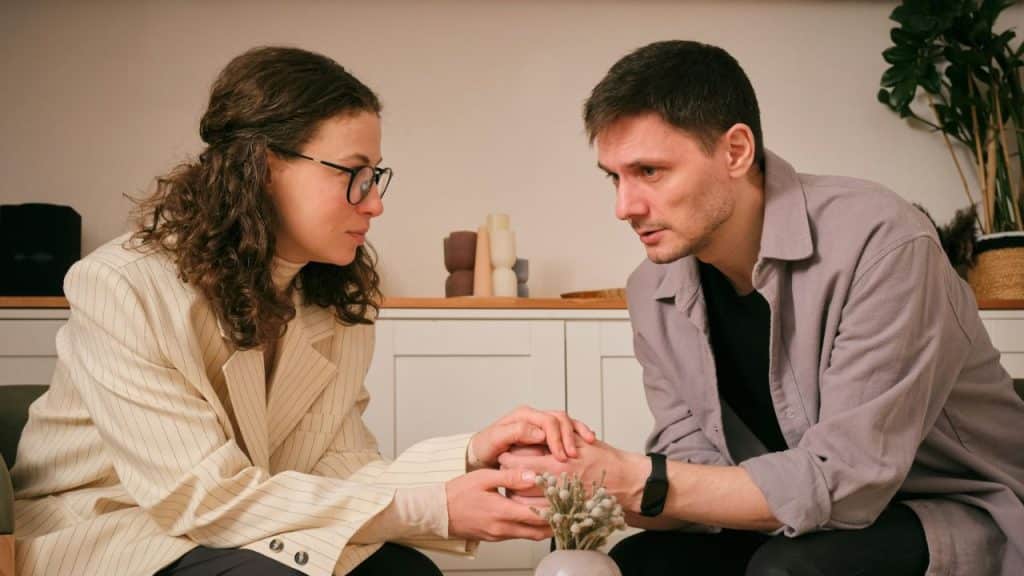
It’s normal to wonder if you’re on the right path with someone you love. You might feel torn between comfort and true happiness. Questioning your relationship doesn’t mean you’ve failed; it means you care enough to seek honesty. As you read these prompts, let memories and feelings surface without judgment. You deserve clarity, and these reflections can guide you to your next step.
Are you truly happy or just comfortable in this relationship?

It’s easy to mistake routine and safety for genuine joy. Think back to moments when you laughed freely or felt excitement. Compare those memories to days when you simply went through the motions. Ask yourself if you’ve lost a spark that once made your heart race. Comfort has its place, but it isn’t the fuel that keeps a partnership alive.
Do your core values still match with your partner’s?

Values shape choices about money, family, faith, and ambition. Remember key conversations where you felt tension over big life decisions. Ask if you still share the same vision for weekends, career moves, or family plans. Misaligned priorities create stress and resentment over time. When values drift apart, the foundation can feel shaky even when the surface seems calm.
Is your partner making a real effort to fix what’s broken?

Notice patterns in how problems get handled at home. Have you raised concerns that were ignored or lightly dismissed? Look for consistent steps they take to understand your perspective. Small changes show respect, like checking in more often or adjusting words when you feel hurt. If effort comes only after big fights, you deserve someone who works to keep tension low every day.
Can you imagine a future where you feel truly fulfilled?

Close your eyes and picture life five years from now. Is your partner by your side, sharing your wins and holding you up during losses? If that vision feels forced or empty, pay attention. Happiness isn’t just a destination; it’s the path you walk each day. A future without warmth or enthusiasm is a warning that your relationship may be drifting into obligation.
Does being with them improve your daily life?

True partnership adds value to your mornings and evenings without draining you. Think about your last week: did interactions lift your mood or leave you stressed? Notice how you feel when you wake up next to them versus on a solo weekend. A partner should be someone you’re eager to see after a long day, not another source of anxiety. If you feel relief when plans change last minute, that’s worth exploring.
Are you in love with who they really are, or with the idea of them?

We all hold onto ideals about the person we fell in love with. Recall moments when reality clashed with your fantasy, such as their quirky habits, stubborn opinions, or everyday routines.. Ask if you can embrace the real person, imperfections and all. Loving an image leaves you lonely when the truth reveals itself. Genuine love accepts flaws and grows stronger in spite of them.
Do you trust them to always back you up?

Trust isn’t just a feeling—it’s proven in shared decisions and private conversations. Remember times you’ve asked for support and noticed their response. Did they stand by you when you felt vulnerable, or shift blame elsewhere? A partner who has your back in public and private creates safety you can’t ignore—constant doubt about their loyalty chips away at intimacy.
Do they show love in the way you need it?

People give and receive affection differently. Maybe you crave words of affirmation while they focus on practical help. Think about recent conflicts—did either of you feel unseen? If their gestures fail to align with your emotional account, discuss which actions matter most. Feeling loved requires both of you to learn each other’s language. If no progress follows honest talks, frustration will only grow.
Are you staying out of fear of being alone?

Loneliness is painful, but so is living in a relationship that feels empty. Ask yourself which scares you more: being single or feeling stuck. Recall past decisions—did fear push you into other partnerships or keep you in this one? Being alone can lead to growth and new happiness if you allow it. Staying only to avoid solitude can cost you years of genuine connection.
Why are you together and why stay together?

List the reasons you chose this person and the reasons you stay today. Compare the emotions each reason triggers—warmth or resignation. Honest motives guide stronger choices than habit or convenience. If your answers lean toward a fear of change or social pressure, take a moment to pause. A relationship needs positive reasons to thrive, not just avoidance of loss.
Does this relationship support your personal growth or limit it?

Healthy partnerships encourage new challenges and shared goals. Recall when you tried something bold, did they cheer you on or criticize your risks? Growth can feel uncomfortable, but a true partner walks beside you. If you’ve stopped dreaming or feel guilty for pursuing your passions, something’s off. Love should fuel ambition, not stifle it.
Are you compromising on values you can’t really give up?

Every relationship requires give and take, but not at the cost of your boundaries. Identify which values you hold non-negotiable, such as honesty, respect, faith, or family time. Have you sacrificed any recently? Notice how that makes you feel afterward—proud or resentful? Sacrificing your core self breeds bitterness and regret in the long run.
Do conflicts between you ever really get resolved?

All couples argue, but solutions matter more than volume. On your last major fight, did you reach a new understanding or repeat the cycle? Real resolution comes when both sides change patterns or behavior. If you find yourselves back at square one, ask why lessons aren’t sticking. Chronic conflict that never heals wears down even the strongest bonds.
Are you aligned on major life goals like family plans?

Kids, finances, career moves, and retirement all require two hearts rowing in the same direction. Picture major decisions—have you discussed them openly? If one of you envisions a small family and the other wants none, tension builds. A shared vision doesn’t mean identical dreams, but rather compatible ones. Clashing life goals often lead to impossible crossroads.
Can you be your authentic self around your partner?

Vulnerability builds trust. Reflect on moments when you shared your deepest fears, past mistakes, or honest opinions with your partner. Did you censor yourself to avoid conflict? A partner who welcomes all of you strengthens intimacy. Hiding parts of your true self creates distance that grows over time and steals the sense of true belonging.
Would you respect someone who acted like your partner?

Imagine your friend in your partner’s place, treating you the same way. Reflect on your small daily habits, including words, gestures, and tone. Would you admire that person’s behavior toward someone you care about? If the answer is no, it’s a red flag. Respect underpins love, and you deserve to be treated as you would treat another.
Are you holding on to what could be rather than accepting reality?

Hopes for change can keep you invested long past the point of return. Did your partner promise better communication, more effort, and changed behavior, and none ever materialized? If you’re clinging to “someday,” note each broken commitment as it happens. Accepting the relationship as it is frees you to make decisions with clear eyes, rather than being clouded by endless “what ifs.”
Have you given this relationship a fair chance to grow?

Start by listing efforts you’ve both made, including counseling sessions, honest talks, and time apart. Genuine attempts leave marks that you can trace, such as new routines or a deeper understanding. If you can’t identify any progress despite making a real effort, consider whether more time will make a difference. Growth requires patience, but it also needs direction and a willingness from both parties.
Do you respect yourself enough to walk away if needed?

Self‑respect is a mirror reflecting how you allow others to treat you. Remember instances where your boundaries were crossed—did you push back or stay silent? If you consistently let your needs slide, you risk losing self‑worth. A partner who values you will never force you to sacrifice your dignity for the sake of peace.
Will you regret leaving them when you look back later?

Anticipating future regret can clarify your heart’s true desire. Imagine yourself a year from now—would you cherish the freedom or miss moments you let slip away? Weigh lost memories against continued pain. Both options carry risks, but regret of inaction often cuts deeper than the grief of letting go. Your intuition knows which weight you’d rather carry.






Ask Me Anything